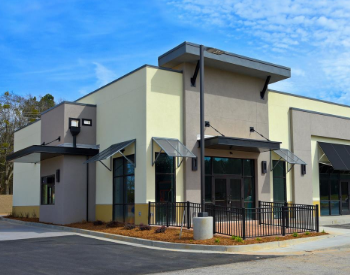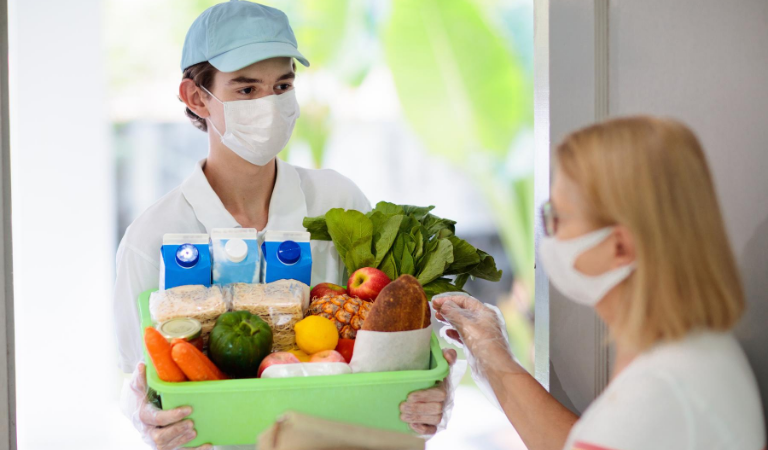Stats Of The Week
The State Of The Industry
In July, restaurants and bars led the nation’s economy in rehiring with 502,000 individuals added to payrolls as dining rooms reopened and to-go sales remained strong, according to the U.S. Bureau of Labor Statistics. Foodservice establishments accounted for nearly one of every three jobs created outside of the agriculture industry during July. The restaurant industry came into August with nearly 9.7 million employees on a seasonally adjusted basis which maintains its status of being the nation’s second-largest employer behind healthcare. Despite more jobs coming back, the figures show 2.4 million fewer people were working in restaurants and bars compared to the 12 million who were employed at the same time last year resulting in a 19.7% decline.
Restaurants Take On Debt To Stay Afloat
According to data from the James Beard Foundation, during May, 75% of independent restaurants reported taking out over $50,000 in new debt while 12% said they took out over $500,000 in debt. The foundation conducted two surveys from May 19 to May 29 and July 14 to July 28, which consisted of over 2,100 respondents. 69% of restaurants said rent and payroll were their biggest, most immediate cash challenges in May, while 52% of respondents in July said their top priorities were getting relief for new personal protection equipment expenses, rent, mortgage, payroll, staff benefits, and vendor expenses.
What’s Trending
Florida Eases Safety Requirements For Restaurant Employees
Florida Governor Ron DeSantis signed an executive order last week which eased COVID-19 safety requirements for restaurant workers. With this order, restaurant employees are no longer required to show two negative COVID-19 tests before returning to work. The new order places the responsibility on restaurant owners to implement employee screening protocols using the guidelines from the Centers for Disease Control and Prevention.
New CDC guidance has adjusted its previous recommendation of patients recovering from the virus from quarantining up to 14 days to now just 10 days after symptoms began. The federal agency still advises business owners to encourage employees to stay home if they are feeling sick or have been in close contact with someone who has contracted COVID-19.
Chains See Opportunities During Restaurant Closures
As the pandemic continues to ravage the country, more and more independent restaurants are permanently closing their doors every week. Despite the economic and health crises, some operators are looking towards the future for growth and development. With many restaurants permanently closing, many opportunities in real estate are developing. Greg Koffler, VP of franchise sales and development for Paris Baguette, said to Restaurant Business that landlords are eager to get deals done and often offer reduced rents and other incentives. The French bakery’s goal is to sign multi-unit franchisees and expand the brand to 100 locations by the end of the year.
Roy Rogers, a fast-food chain, is also in growth mode with refreshing its store design, introducing digital menu boards, strengthening its core menu, and enhancing operational efficiencies. Their new prototypes opened at the end of July along the Pennsylvania Turnpike and replaced two former Steak ‘n Shake locations. Roy Rogers has reported that they’ve been experiencing positive sales growth and their upgrades have improved performance during the pandemic.
DoorDash Launches A Digital Convenience Store
DoorDash has announced a new service called DashMart, a new digital convenience store service. This service marks the company being able to manage and deliver its own inventory. On DashMart, customers can buy around 2,000 grocery products, household essentials, convenience store items, and restaurant offerings. To start, DashMart will be available in eight cities including Chicago, Dallas, and Phoenix, and continue to expand to new cities like San Diego, California, and Baltimore, Maryland, in the next several months. The service will feature retail products from national brands like The Cheesecake Factory and other local businesses. Deliveries from DashMart will be available in as little as 30 minutes, CNBC reported.
Uber Eats Grows In Sales & Partners
According to a company release, Uber reported a 103% year-over-year revenue increase for Uber Eats as a part of its Q2 earnings. Meanwhile, Uber’s ride-hailing business saw a revenue decline of 67%. Uber Eats also reached a milestone with 500,000 active restaurant partners in June, which is up 50% compared to Q2 last year. The company added enterprise accounts including Baskin Robbins, Chopt Creative Salad, Dave & Busters, Del Taco, and Yum Brands. Also, its small to medium restaurant addition grew over 70% year-over-year during Q2.
"Our team continues to move at Uber speed to respond to the pandemic's impact on our communities and on our business, leading our industry forward with new products and safety technologies, and harnessing the strong tailwinds driving exceptional growth in delivery, with Gross Bookings growing 122% year-over-year excluding exited markets," CEO Dara Khosrowshahi said in the company release.
Restaurant Reinvents Business Model To Survive
In Zionsville, Indiana, a popular gathering spot, the Cork and Barrel Wine Bar, temporarily closed during COVID-19 shutdowns. Co-owner Sarah Hine quickly turned the wine bar into a delivery business and a mini grocery store to sell consumer-sized quantities of grocery staples. Hine partnered with Piazza Produce, a wholesaler in Indianapolis, to sell everything from filet mignon to milk, buns, and produce. The bar started doing 30 to 40 deliveries a day for customers who couldn’t find what they needed at grocery stores or had to wait days for an Instacart order. Hine’s wine bar and Piazza Produce were able to bring in revenue, which didn’t replace normal volumes but helped both companies stay in business.
"I was used to running a wine bar but I had to pivot to be a complete retail store," Hine said to
Restaurant Dive.
Bright Spots In A COVID-19 World
Celebrity Chef & Actor Team Up To Feed Their City
Celebrity chef Marcus Samuelsson and Michael B. Jordan have collaborated to create Newark Working Kitchens (NWK), which makes meals for locals in Newark, NJ. NWK has activated 25 local restaurants that have prepared over 310,000 meals since April. Samuelsson told Bloomberg News that he reached out to Jordan because he had family ties to the area. His father worked at a food bank in Newark and his family ran a small catering company there. NWK is also sponsored by other big names like Audible Inc., Twitter Inc. CEO Jack Dorsey’s Start Small program, and Rihanna’s Clara Lionel Foundation.
“Having grown up in Newark, I know its incredible strength and resilience firsthand. I was proud to answer the call from Marcus to support the work of Newark Working Kitchens by donating meals to those in need while at this same time empowering local restaurants and businesses,” Jordan wrote in an email to Bloomberg News.
Local Restaurants Give Teens A Unique Dining Experience
In Chicago, IL, three chefs from fine-dining restaurants are teaming up with three pizzerias to raise money for My Block, My Hood, My City. The foundation provides underprivileged youth with an awareness of the world and opportunities beyond their neighborhood. The idea came from Caleb Trahan, sous chef at Schwa, a restaurant in Wicker Park, because he wanted to find a way to work with restaurants while providing the local youth access to different food and dining experiences during the pandemic. Teens will be able to enjoy gourmet pizzas for pickup like poutine-and-chilaquiles-inspired pizza, Sicilian-style ratatouille-inspired pizza, and jamon y melon grandma-style pizza.
Quote Of Hope
“Restaurateurs and chefs, we are dreamers. So I plan every morning. I have to see the light. Although we’re in it right now... we live on hope.” - Marcus Samuelsson, chef and restaurateur






